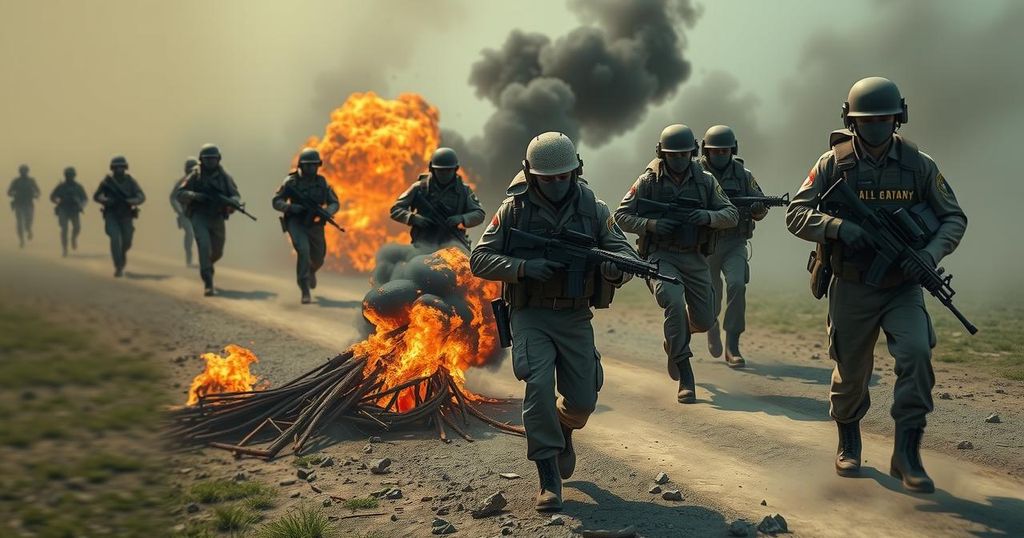The Arakan Army’s Rise: Consequences for Myanmar and India
The Arakan Army’s control over parts of Rakhine province amid Myanmar’s civil war poses significant regional security issues, particularly concerning the potential for increased refugee flows into Bangladesh and India. This uprising has prompted India to reassess its diplomatic strategies, considering both the implications for domestic security and the challenges posed by Chinese influence in the region.
The ongoing civil war in Myanmar, particularly the rise of the Arakan Army (AA), reflects significant shifts in the conflict dynamics. As the largest ethnic rebel group in Myanmar, the Arakan Army has seized control over vast portions of Rakhine province, complicating regional security along the borders with Bangladesh and India. Following the military coup in 2021, which displaced a democratically elected government, the struggle for autonomy and resources among various ethnic armed organizations has intensified, raising concerns about the potential for further instability and refugee flows. The recent territorial gains of the AA have highlighted their influence, creating both opportunities and challenges for neighboring countries, especially India, which is wary of the ramifications for its northeastern states.
The recent escalation in the conflict involving the Arakan Army is rooted in a long-standing struggle for autonomy among ethnic groups in Myanmar. The military takeover in 2021 aggravated pre-existing tensions, leading to the Arakan Army’s greater assertiveness against the junta. Additionally, the plight of the Rohingya community, which remains unrecognized by Myanmar, compounded by violent past interactions with the Arakan Army, has led to complex humanitarian issues. The geopolitical landscape is further complicated by China’s involvement and significant investments in Myanmar, particularly in infrastructure projects linked to the Belt and Road Initiative, posing a challenge to India’s strategic interests in the region.
The rise of the Arakan Army in Myanmar presents both a challenge and an opportunity for India as it navigates complex geopolitical and humanitarian issues. With rising tensions and the possibility of expanded conflict impacting border stability, India must enhance its diplomatic engagements with both the junta and ethnic armed organizations. Fostering a dialogue-driven approach to promote federalism and democracy in Myanmar will be essential in mitigating risks to its own northeastern states and securing vital infrastructure projects.
Original Source: www.ndtv.com








Post Comment